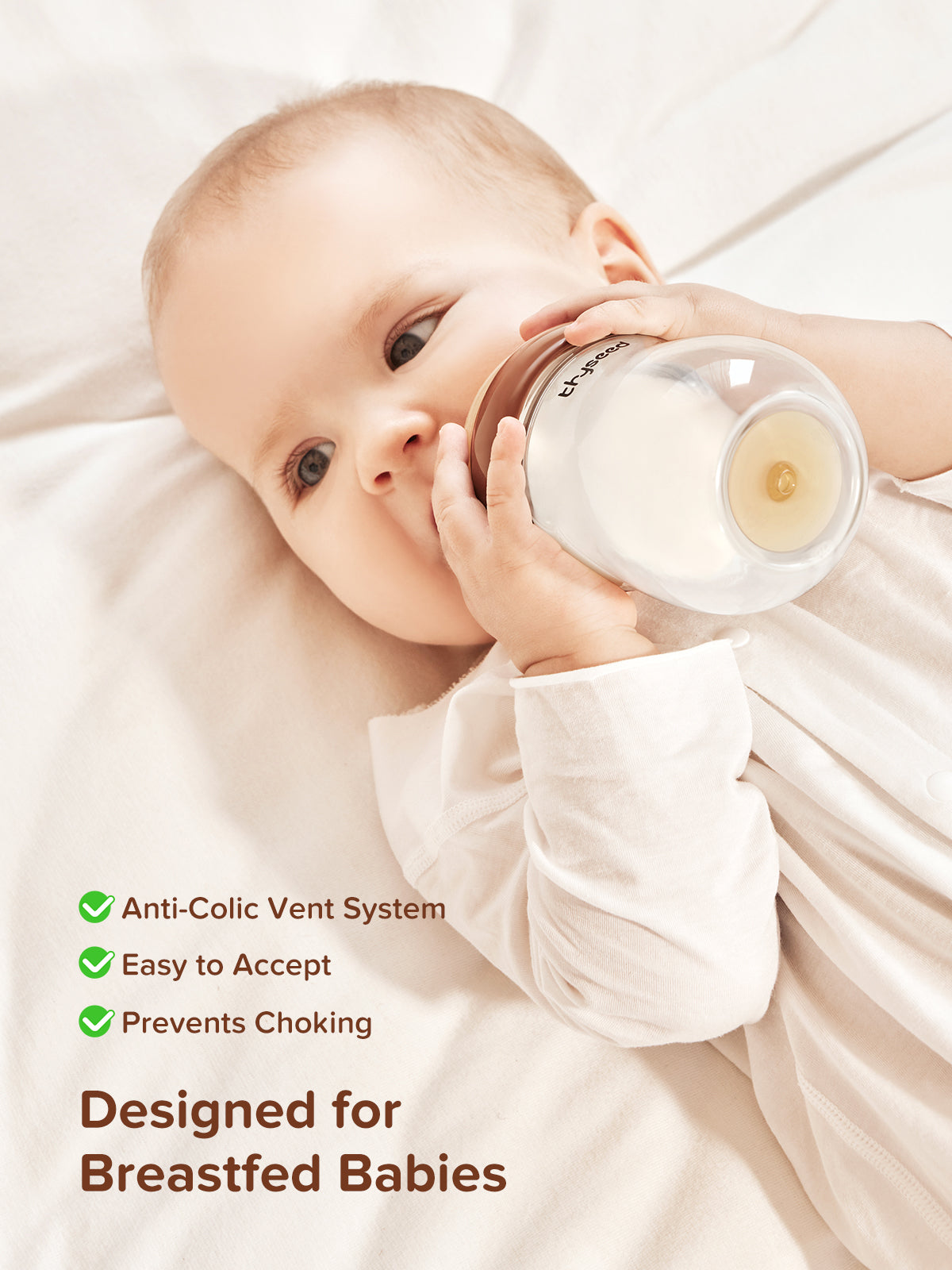Is Glass the Ultimate Game Changer for Breastfeeding? Discover the Surprising Truth!
In recent years, glass breastfeeding bottles have surged in popularity among parenting communities, creating a buzz of discussion and debate. As parents become increasingly conscious of the products they choose for their infants, the right feeding bottle has become a pivotal choice impacting both the baby's health and the parent's peace of mind. With vibrant conversations circulating on social media and parenting blogs, many are turning to glass options, intrigued by their potential benefits. This article will explore the advantages and disadvantages of glass breastfeeding bottles, aiming to provide a comprehensive view to assist parents in making informed decisions for their little ones.

Advantages of Glass Breastfeeding Bottles
There are numerous advantages to using glass breastfeeding bottles that many parents find appealing. One of the primary benefits is safety; glass bottles are made from natural materials and are free from harmful chemicals such as BPA, phthalates, and other toxins commonly found in some plastics. This is particularly important as infants are more susceptible to the effects of these substances, making the choice of safe feeding materials paramount. Additionally, glass bottles are incredibly durable and can withstand high temperatures, making them ideal for sterilization. Unlike their plastic counterparts, glass does not absorb odors or stains, ensuring that each feeding remains fresh and clean. Personal experiences shared by friends reveal that many parents appreciate the ease of cleaning glass bottles, as they can be placed in the dishwasher or boiled without fear of damage.
Safety and Health Benefits
When considering the safety and health benefits, glass bottles stand out as a safer alternative to plastic. The potential for leaching chemicals from plastic bottles can be a concern for many parents, as studies have shown that certain plastics can release harmful substances when heated or worn. Glass, on the other hand, is inert and does not leach any chemicals into the milk or formula, which is crucial for maintaining the integrity of what an infant consumes. Furthermore, glass bottles can significantly reduce the risk of allergies associated with plastic materials, offering peace of mind to parents who are cautious about their child's exposure to allergens.
Disadvantages of Glass Breastfeeding Bottles
While glass breastfeeding bottles boast several advantages, they are not without their drawbacks. One of the most cited disadvantages is the weight of the bottles. Glass bottles can be substantially heavier than plastic, making them less convenient for parents who are frequently on the go. In addition to their weight, there is also the risk of breakage. Although many glass bottles are designed to be resistant to shattering, there is always a chance that they may break if dropped, posing potential safety hazards. This concern can be particularly daunting for parents who travel or are out and about, as the fear of a broken bottle can lead to anxiety during outings. Furthermore, glass bottles often come with a higher initial cost compared to plastic options, which can be a significant factor for budget-conscious families.
Considerations for Parents
When choosing between glass and plastic bottles, parents should consider various factors that align with their lifestyle and preferences. Frequency of use plays a vital role; for parents who are primarily at home, glass may be a suitable choice due to its durability and ease of cleaning. However, for those who travel frequently or have a busy lifestyle, the weight and risk of breakage associated with glass may be a deterrent. Additionally, personal preferences regarding safety, environmental impact, and aesthetics can guide the decision-making process. Engaging in conversations with other parents can provide valuable insights, as shared experiences can shed light on the practicalities of each option.
Summary of Key Considerations
In summary, glass breastfeeding bottles present various pros and cons that parents must weigh carefully. The health and safety benefits of glass, including its non-toxic properties and durability, make it an attractive option for many families. Conversely, the weight, risk of breakage, and higher costs are notable disadvantages that cannot be overlooked. Ultimately, the right choice depends on individual family needs, lifestyle, and values. By understanding the advantages and disadvantages of glass breastfeeding bottles, parents can make informed and confident decisions that align with their unique situations, ensuring the best feeding experience for their infants.






Comentarios